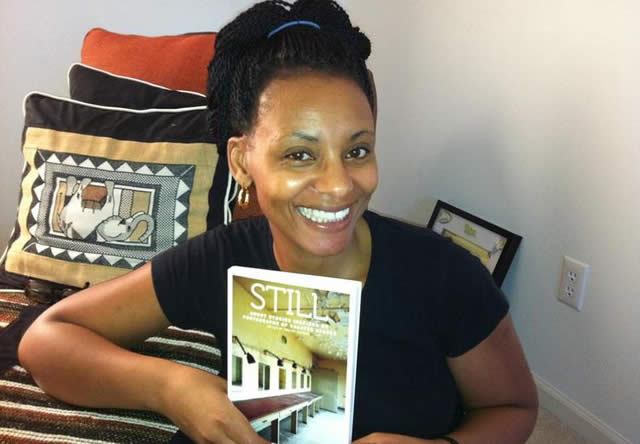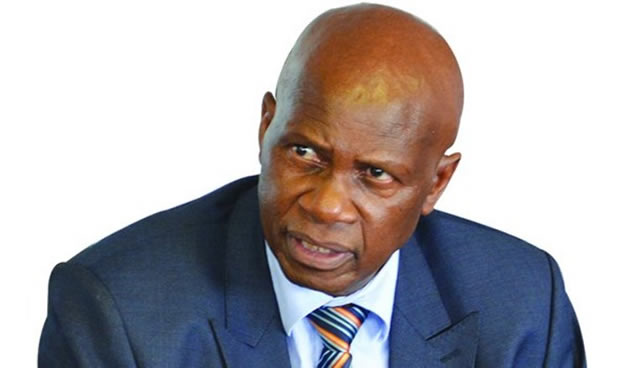‘Constructive criticism will build Zim literature’

Zimbabwean writer based in the US Barbara Mhangami-Ruwende (BMR) was recently in the country for the Literary Festival (LitFest) where she gave the key note address on stereotypes and women’s safety and also moderated a discussion on research in novel writing. One of Mhangami’s short stories has been featured in “Where to Now? Short Stories from Zimbabwe” (available on Amazon). The engaging writer who says she once considered becoming a nun following her education by Dominican Sisters in Bulawayo took time out on the final day of the festival to chat to fellow writer and Chivi home girl Monica Cheru-Mpambawashe (MC) about various issues: Here are some highlights from the talk:
MC: Although still so young, the LitFest has already become the key note events on Zimbabwe’s literary calendar. You travelled all the way from the US for the festival. How have you found this year’s edition?
BMR: This is a great initiative. It has achieved so much with so little to expose its potential. This is exactly the kind of thing we need to happen in Zimbabwe. Some Zimbabweans in the Diaspora have access to funds and with proof of such phenomenal work on the ground as the LitFest, we can access resources to compete with the great works happening in Nigeria, Kenya and Uganda. LitFest is producing tangible results.
CM: Some writers on the continent have expressed sentiments that they feel doubly marginalised when labelled as Black African women writers instead of just writers. How do you feel about it?
BMR: I accept the label because it describes who I am even if not completely. Neither does it dictate what I choose to write about. I am not threatened or suffocated by it. What is important is that I am faithful to the stories given to me to write.
MC: “There is no reading culture in Zimbabwe anymore” is a popular whine among writers who are disappointed by low sales volume. How true is this observation? Especially when taken in light of the proliferation of book vendors on streets and in places like Avondale Flea Market.
BMR: Maybe reading culture as we would want to define it is dead but culture is not static. For me in any context, is it fluid and made up of the people? The culture in which we exist has evolved. There are now alternatives to hard copies as people read online. People also share reading material through social media platforms and these are not necessarily the traditional forms of the written word. For example someone can update their status on Facebook with engaging posts that people follow.
So the reading culture is there but as writers we need to become creative in how we put stories out. We can use digital outlets to tell stories in an engaging way. We can move from literary fiction to critical thinking and issues of the day because that is what people are interested in. For example as a woman, I will engage with issues that are important to women. So I must ask myself, “Who is the woman out there? Who am I writing for?”
Writers need to find out the genres appealing to people and find ways of engaging the reader. Why are Nigerian movies popular? Because they go into the realms of fantasy and science fiction. People are transposed into other worlds through fantastic ideas outside reality. People read or watch movies to escape reality, to discover the alternative reality.
MC: It has been observed by some critics that the Zimbabwean writing scene is not thriving because we are producing huge quantities and little quality. The critics say that writers celebrate mediocrity instead of pushing each other to greater heights. I have personally experienced having a poorly edited book out there and having everyone say great stuff about it then go back to it myself after the euphoria has died only to discover embarrassing typos and other errors. Another writer has also shared how they are mortified by the standards of their NAMA winning work which got rave reviews. What is your take on this?
BMR: There is inability in our community to critique each other constructively. But we also need to be willing to accept constructive criticism and not view it as any other thing. As writers we need to get over our complacency and self-satisfaction.
We must also get into the habit of using at least one or two readers prior to publication. I give my work to NoViolet (Bulawayo) and she says to me, “Sis Bee, I am not here to tell you pretty things. I am going to read your work to find the faults and expose the weaknesses.”
MC: What is your next offering?
BMR: It is a novel. I have been working on it for three years and it will finally be out in a few months.
MC: What is your message to other writers?
BMR: Leverage the ICT revolution which means you have no physical boundaries. Get known through the various digital platforms. You have to go and get it because it will not come to you while you sit there.
MC: Moving onto other matters, what is your family set up
BMR: I am married and a mother of four daughters aged 14, 12 and nine year old twins.
MC: As women we always have to juggle roles and find space to write. Describe a typical day in your life
BMR: I get up at 4.30am and do my writing. At six it’s time to get everyone ready for the day. I then do the school run. On my way back I do errands like shopping and payment of bills. When I get back home I take care of the chores including laundry and other housework. Around 10 I get down to more writing. At two thirty I engage in my daughters’ co curricular activities like dancing and swimming then come back home. Eight is dinner time then I spend time with my husband. I try to write a bit before getting to bed between 10.30 and 12.
MC: Describe your dress style
BMR: My 14 -year-old child calls it confused. It encompasses eclectic styles. I can do a beautiful African woman outfit, post modern bohemian or sweat pants and a T/shirt.
MC: What is the one thing that you would never leave home without?
BMR: My phone
MC: What can a girl never have too much of in her wardrobe?
BMR: Jeans
MC: What’s your take on the weave debate?
BMR: I am not defined by my hair. I can do a buzz cut or a long weave. I can wear lipstick or not. Each day I turn out as the woman that my inner goddess wants me to be.
MC: One thing that you really hate?
BMR: I hate chameleons. It’s just one of those phobias that are inexplicable.









Comments